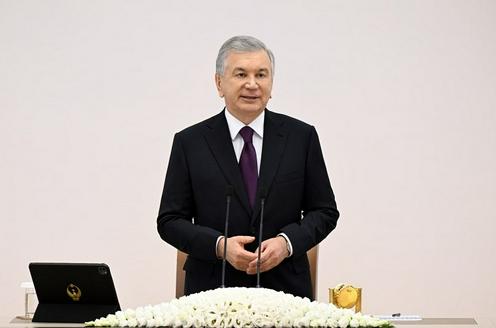Uzbekistan has introduced additional support measures for entrepreneurs working in the fields of tourism and information technology. These include preferential loans, subsidies, and mechanisms for attracting investment. President Shavkat Mirziyoyev announced the initiatives at his annual meeting with business representatives, according to his press service.
Particular attention in the country is given to the service sector, one of the most effective areas for job creation, with tourism playing a central role. Mirziyoyev cited statistics showing that since the beginning of this year, nearly 7 million foreigners have visited Uzbekistan, while 15 million citizens traveled domestically. Over the next three to four years, the annual flow of international tourists is expected to reach 15 million.
A new state program for the development of the tourism industry is being launched. Under the program, 5,000 hectares of land will be put up for auction over the next three years for the construction of hotels and other tourism facilities. Entrepreneurs who choose to build a hotel will be exempt from paying for the land, with the state instead entering the project as a cofounder with the necessary investment. The entrepreneur will then have ten years to buy out the state’s share, with a 20 percent discount offered for a one-time payment.
Preferential loans are also available for hotel construction:
👉 up to 30 billion soums ($2.4 million) in regional centers and designated tourist zones;
👉 up to 10 billion soums ($800,000) in other parts of the country.
While subsidies were previously granted only for new projects, they will now also apply to the conversion of existing buildings into hotels.
In addition, most regions will abolish the hotel tax, previously set at up to 62,000 soums (about $5 per day per tourist). The tax will remain in place in Tashkent, regional centers, and special zones.
Mirziyoyev also proposed establishing an annual competition for hotels and guesthouses with a prize fund of $1 million, with winners determined by guest reviews and assessments from industry-related online platforms.
Support is also planned for the IT sector. According to the president, Uzbekistan is now home to more than 600 startups, which in recent months alone attracted a record $264 million in foreign investment—four times the figure from last year.
In the coming years, thousands of ideas from young entrepreneurs will be monetized, with 200 startups expected to enter the international market. Through advanced technologies, 100 of these companies will be transformed into globally competitive businesses, with $100 million allocated for this purpose. The government will also cover the costs of financial and marketing services provided by external experts.
A new competition, a championship among young entrepreneurs, will also be launched. Within the project, 100 ideas will be selected, each receiving investments of up to 1 billion soums ($80,000).
The number of e-commerce platforms in Uzbekistan is also growing. Mirziyoyev noted that the number of marketplaces in the country has increased from 24 to 163 over the past three years.
Entrepreneurs and artisans have already begun selling their products through online platforms. Business representatives asked the president to introduce a mechanism for VAT refunds on goods sold online, similar to traditional export transactions. Mirziyoyev instructed the relevant agencies to develop and approve the new procedure.
Meanwhile, Uzbekistan will adopt a five-year strategy to increase the number of fintech startups and support them, create an “open banking” system for cooperation between financial institutions and IT companies, and aim to increase investment in startup projects tenfold in the coming years.
Overall, banks allocated $6 billion this year alone for entrepreneurship financing. In 2026, $1 billion is expected to be provided exclusively to small and medium-sized businesses on preferential terms.










